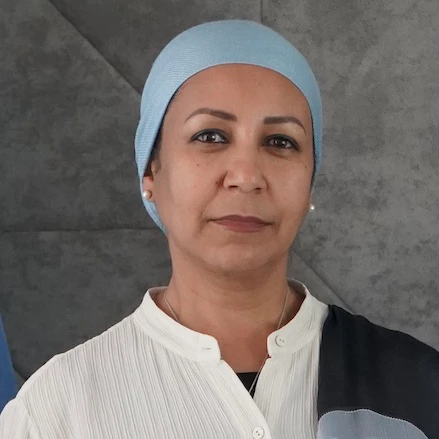 Palm trees at the AlUla Oasis heritage site in Saudi Arabia. (Shutterstock.com/eyetravelphotos)
Palm trees at the AlUla Oasis heritage site in Saudi Arabia. (Shutterstock.com/eyetravelphotos)
As we mark this year’s World Environment Day, the stakes have never been higher for accelerating land restoration, drought resilience and combatting desertification. The message is clear – we need to care more for nature and invest in our land, so that our planet can remain livable for present and future generations.
Nearly one-fifth of our planet is threatened with desertification leading to the loss of fertile soils and biodiversity which we need to grow food for millions of people and feed for livestock. Climate change has further aggravated the situation especially in countries that have experienced alarming drought events, battled large-scale deforestation or continued using unsustainable agricultural techniques. Since 1961, climate change has reduced global agricultural productivity by about 21%. Moreover, since 2000, the world has lost more than 10% of its global tree cover, with the tropics accounting for 1.48 million km2 of deforestation — an area larger than France, Spain, and Germany combined.
The Kingdom of Saudi Arabia (KSA) is no stranger to such climate challenges. With 95% of its terrain classified as desert3, the remaining productive landscapes and ecosystems face severe threats from land degradation. In 2019, land degradation impacted 20 million hectares in KSA- more than 10% of the Kingdom’s land. Endowed with only a small area of dense forests, data suggest that KSA has lost about 50% of its tree cover over the past 20 years. These figures clearly underscore the sound economic and ecological case for investing in landscape restoration.
The World Bank, a strategic partner for Saudi Arabia’s ambitious Vision 2030, has worked closely with the Saudi Ministry of Environment, Water and Agriculture. Over the past decade, the Bank provided strategic support to the ministry on various issues, including assessing the cost of rangeland degradation and desertification, as well as valuating KSA’s mountain forests and mangrove. The findings are highly relevant for Vision 2030 and support the proposed large-scale reforestation and landscape restoration initiatives.
The World Bank has rich experience in supporting countries around the world to combat land degradation. It has invested significantly in sustainable land management and landscape restoration. Some examples of large-scale programs that have been successfully implemented are in Sub-Sahara Africa (Mali, Niger), in Central Asia (Uzbekistan, Kazakhstan), South America (Brazil, Peru) or South Asia (India, Pakistan). The Bank’s commitment to this agenda are illustrated through the Great Green Wall initiative, which has successfully brought 1.6 million hectares of land under sustainable management, benefiting over 19 million people. The initiative has also proved that landscape restoration can be very cost effective with an average cost of only $277 per hectare of land restored.
Saudi Arabia has embraced the concept of environmental sustainability. The country has become a regional leader in addressing global challenges and exploring innovative ideas related to the conservation and sustainable management of natural resources. The recently established Middle East Green Initiative (MGI) will support projects that promote sustainable land management and restore degraded lands, mainly in dryland countries, with a budget of at least US$2.5 billion over 10 years. The MGI is complemented by an ambitious national program, the Saudi Green Initiative (SGI), which unites environmental protection, energy transition and sustainability programs with the overarching aims of offsetting and reducing GHG emissions by increasing forest areas and support land restoration.
It is therefore no surprise that KSA is hosting the 2024 World Environment Day on June 5 and the upcoming 16th Conference of the Parties of the UN Convention to Combat Desertification and Drought (COP16) in December 2024. COP16 is set to become a landmark event for accelerating actions on land restoration, drought resilience and green transition. These events will provide opportunities for countries to learn from each other about what works and what does not when restoring degraded lands, making KSA a center of knowledge for land restoration actions.
Ensuring a livable planet for all is now part of the vision statement of the World Bank. With its new Global Challenge Program on Forests for Development, Climate, and Biodiversity, the World Bank stands ready to support and collaborate with its partner countries like KSA to restore precious lands and combat the impacts of climate change once and for all. Together, let’s celebrate World Environment Day and accelerate our actions on land restoration for a livable planet!


Join the Conversation